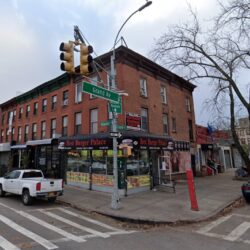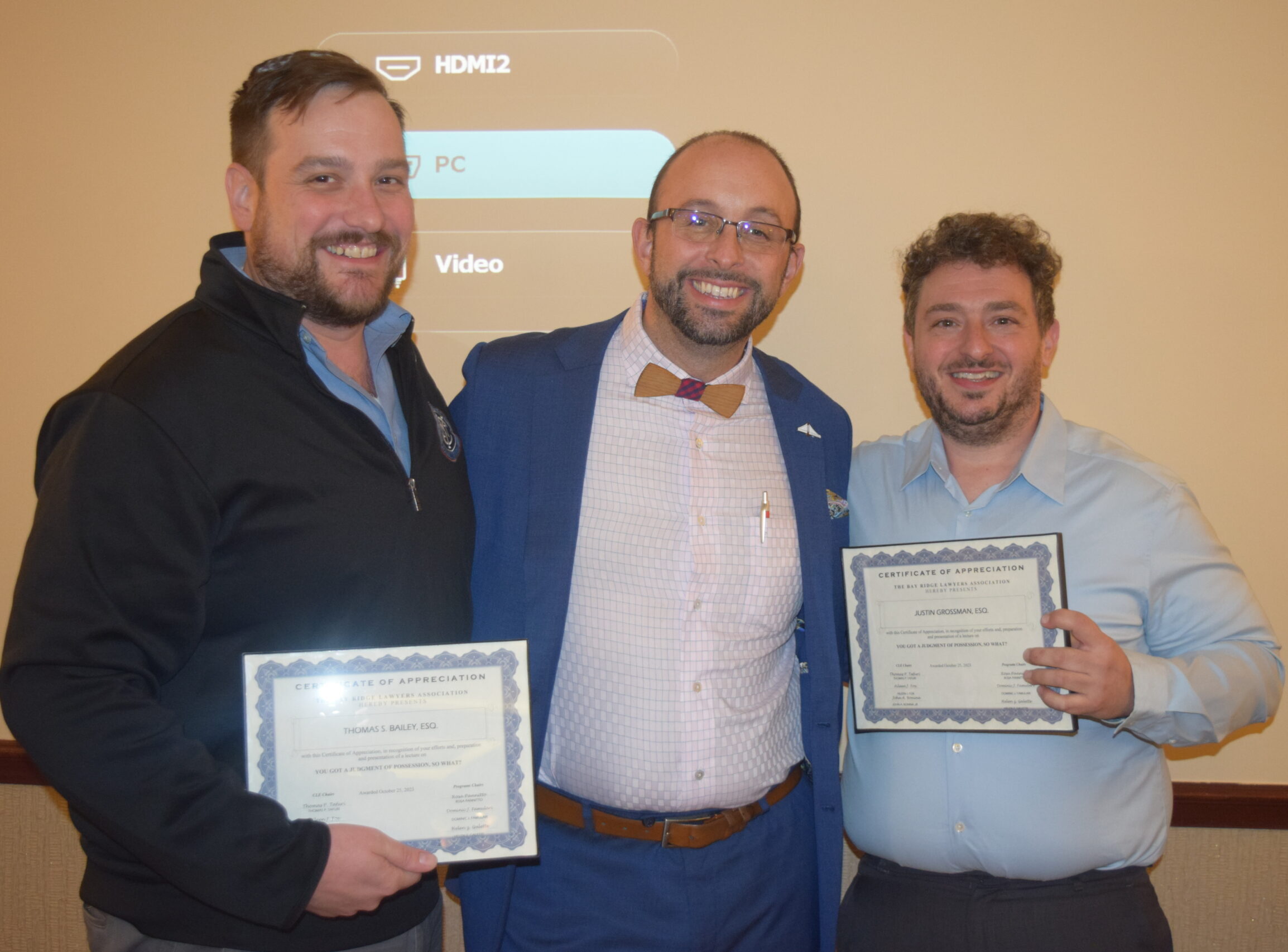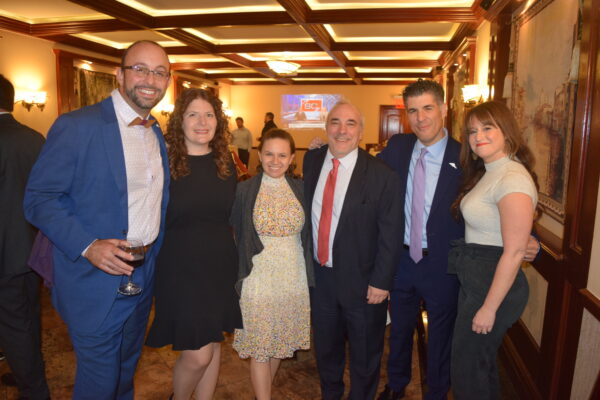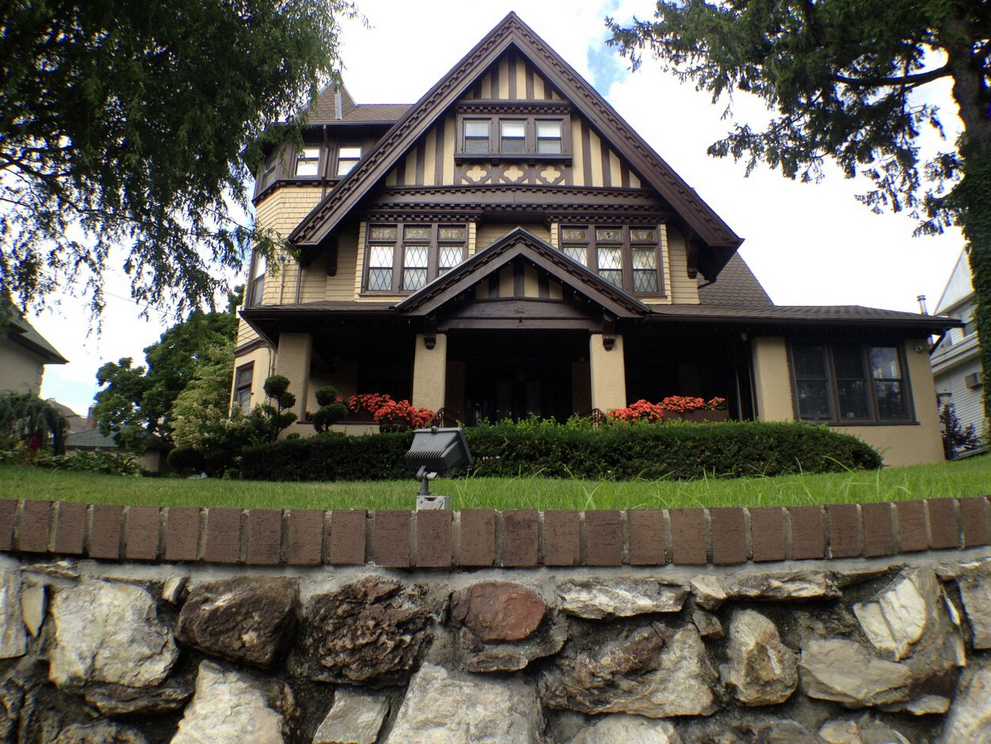
Bay Ridge Lawyers tackle eviction processes and tenant rights in recent CLE

From left to right: Thomas Bailey, Adam Kalish and Justin Grossman at the Bay Ridge Lawyers Association's Continuing Legal Education session on landlord and tenant court proceedings, held at Mama Rao's in Dyker Heights.
Photos: Robert Abruzzese/Brooklyn Eagle
Photos: Robert Abruzzese/Brooklyn Eagle





